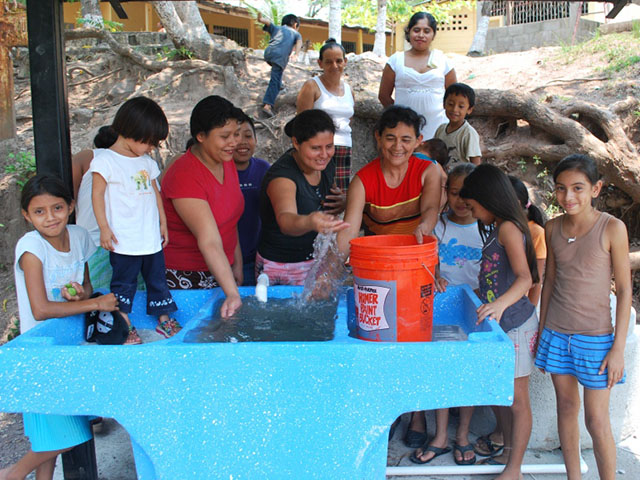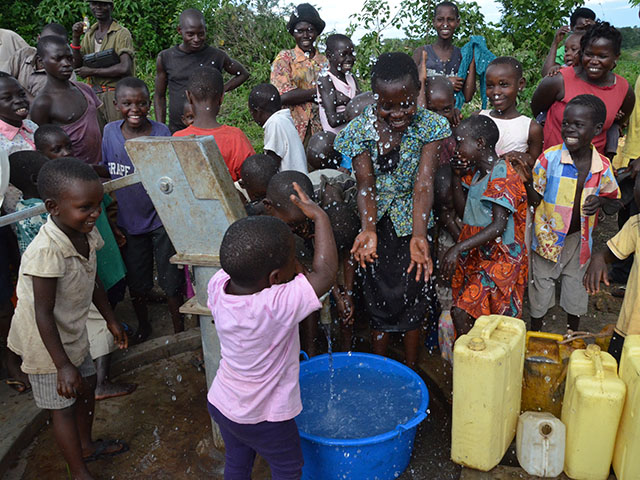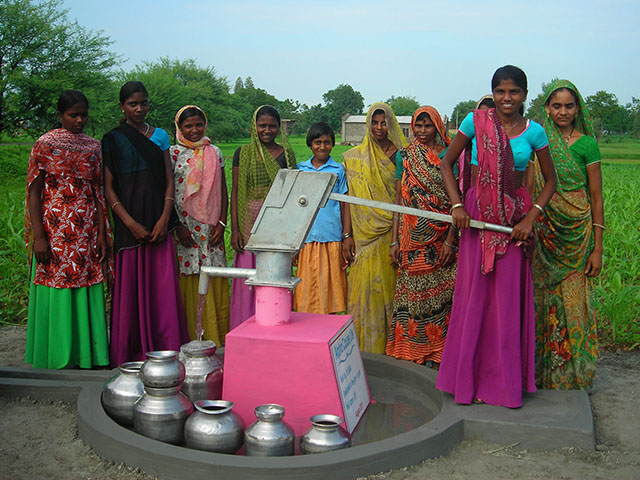The more I learn about unsafe drinking water in the developing world, the more I realize how dissimilar my daily routine is from millions of women.
At all times, I am within steps of clean water. Showering in the morning is as simple as twisting a knob. Cooking dinner is only as time-consuming as the recipe I choose, and I certainly don’t have to make a fire or haul water into my home. I have a functional toilet, and I can even freeze my own water.
With easy access to water and food, I have plenty of time to work, cook, relax, and pursue activities I enjoy. I rarely wonder if the electricity in my house will work. I often think about food, but only what I’m craving next. And the times I think about clean water? Never.

For reasons unknown, God allowed me to be born in a country where I don’t spend long hours of my day on basic survival. But for millions of women, survival is a fact of everyday life. They spend hours upon hours walking for water, cooking meals over an open fire, and trying to make ends meet.
My entire life, I have enjoyed having time and choices. But for women simply trying to stay afloat, time and choices are luxuries they don’t have.
Today is International Women’s Day—a time to celebrate and reflect on the progress of women’s rights around the world. It is also a time to recognize the work that remains in the fight for global equality for women.
Although water is one of many obstacles inhibiting gender equality—not including child marriage, sex trafficking, female infanticide, unequal access to education and job opportunities, and negative cultural attitudes—it is certainly one of the most basic.

On a practical level, walking for water can remove precious, valuable hours from a woman’s day—stripping away time to make important choices about life.
With easy access to clean water, basic tasks like bathing, cooking, and cleaning become less risky and time consuming. Entire communities enjoy better health, school attendance increases, and violence against women alone on the path to collect water decreases. Clean water gives women more time for family, to pursue new opportunities to impact their village, or create a small business as an alternate source of income.
When a developing community gains access to a sustainable water source, perhaps those most affected—and forever changed—are women.
Caring about women can start with caring about clean water. When you invest in a clean-water project, you are offering women the opportunity to dream again, the time to make plans for their lives, and the hope of a brighter tomorrow.

For a long time, the disparities between my life and the lives women in developing countries made me feel constantly guilty. But eventually, I realized that my guilt accomplished nothing—it certainly didn’t move me into action.
What really changed me was the realization that clean-water projects impact not just an entire community, but individual women with their own stories, sorrows, and joys. These women are hard workers, loving wives, sisters, and mothers—strong individuals who have dreams for the future.
God knows their names, and He knows their pain. He loves them and sent His son to die for them. They matter to Him, so they should matter to us.
This year, for International Women’s Day, take a stand for women who don’t have the luxury of time and choices. Make a difference that can transform an entire community—and an individual life.




